Jan. 6 committee hearing Day Two: Latest updates
The Jan. 6 committee’s Thursday prime-time hearing drew millions of viewers. It offered the country a first look at what the panel has found as a result of thousands of hours of investigations, depositions, and interviews since it formed late last year.
While some trespassers appeared to have been caught up in the moment, others, the committee attempted to show, were in Washington, D.C., with an intent to commit crimes.
On the day of the riot, events appeared to unravel spontaneously. However, the committee is attempting to lay out a case that while some people were involved in a chaotic, spontaneous event, there was a seven-point plan devised by Trump to ensure he stayed in office.
Thursday’s prime-time hearing might not have persuaded anyone to change their mind about the events on Jan. 6, but committee members will return today to try and strengthen their case against the former president.
The Committee finished its second public hearing Monday just before 1 p.m.
Highlights from the hearing can be found below and more coverage can be found here.
• Six notable moments from the House Jan. 6 committee’s prime-time hearing
• Jan. 6 committee highlights Barr calling Trump fraud claims ‘bull****’
• Can the Jan. 6 hearings break Biden’s polling free fall?
• Arkansas Gov. Asa Hutchinson: Trump ‘politically, morally responsible’ for Jan. 6
• Prosecution for Trump ‘quite likely’ in Georgia, legal analyst says
• Former AG Barr: Jan. 6 panel not ‘optimal mechanism’ to probe ‘legitimate areas of inquiry’
In closing statements, Rep. Liz Cheney (R-WY) played a video clip of an interview with former Trump lawyer Eric Herschmann the day after Jan. 6 urging a peaceful transfer of power, foreshadowing testimony that will be presented at the committee’s next hearing on Wednesday.
“Are you out of your effing mind?” Herschmann recalled saying to lawyer John Eastman on the day after the Capitol riots. “I only want to hear two words coming out of your mouth from now on: orderly transition.”
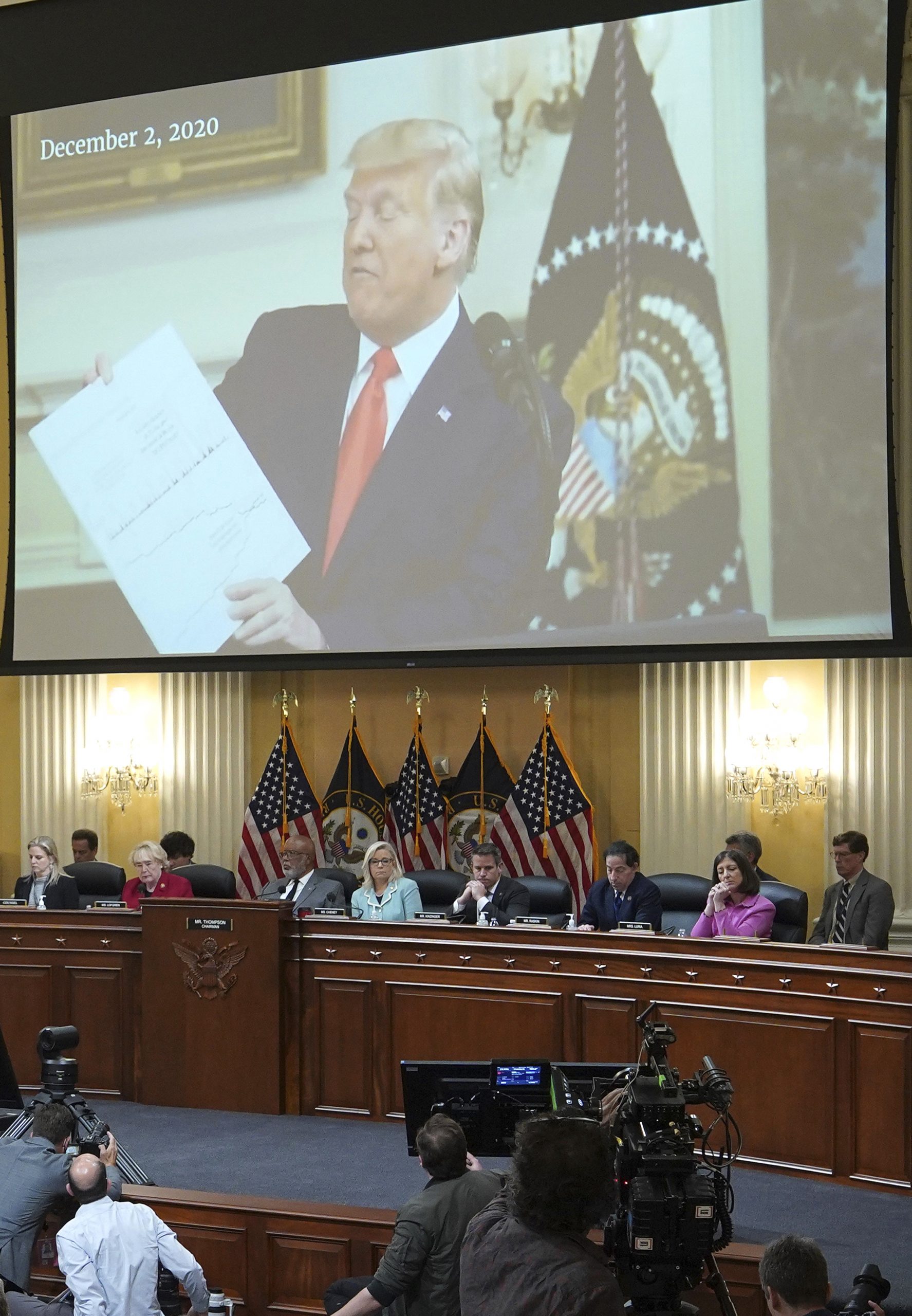
Election fraud claims were used as a massive fundraising boon for the Trump campaign and GOP-supported causes, the Jan. 6 committee explained. Trump’s campaign and his allies engaged in a “big rip-off,” Rep. Zoe Lofgren (D-CA) declared.
“Throughout the committee’s investigation. We found evidence that the Trump campaign and its surrogates misled donors as to where their funds would go and what they would be used for. So not only was there the big lie, there was The Big Rip off donors deserve to know where their funds were really going,” Lofgren proclaimed.
Many donors gave money on the premise that it would be used to litigate the 2020 election, but that is not where it went, according to testimony.
The Trump campaign “knew these claims of voter fraud were false, yet they continued to barrage these small-dollar donors with emails, encouraging them to donate something called the Official Election Defense Fund. The select committee discovered no such fund existed.” pic.twitter.com/UWvagsJU5P
— Brian Stelter (@brianstelter) June 13, 2022
Trump and his allies raised $250 million, and nearly $100 million of that was in the first week after the election, according to the committee. Most of the funding went to the Save America PAC and other pro-Trump organizations, including 1 million to former chief of staff Mark Meadows’s charitable foundation and $1 million to the America first Policy Institute, per the panel.
The Jan. 6 committee had attempted to subpoena records of RNC internal communications and fundraising data in the weeks following the election, arguing the data were necessary to understand how fundraising emails sent to Trump supporters may have instigated violence that led to the Capitol attack.
The House select committee had subpoenaed Salesforce in February to produce internal records that showed how the RNC profited from fundraising off claims that the 2020 election was stolen. The subpoena sought data from ads sent between Nov. 3, 2020, and Jan. 6, 2021, with lawmakers arguing the emails helped lead to the violence at the Capitol riot.
The panel later dropped its bid to receive the records, conceding that the schedule set by the appeals court would not allow lawmakers to receive the records before they were set to begin their public hearings.
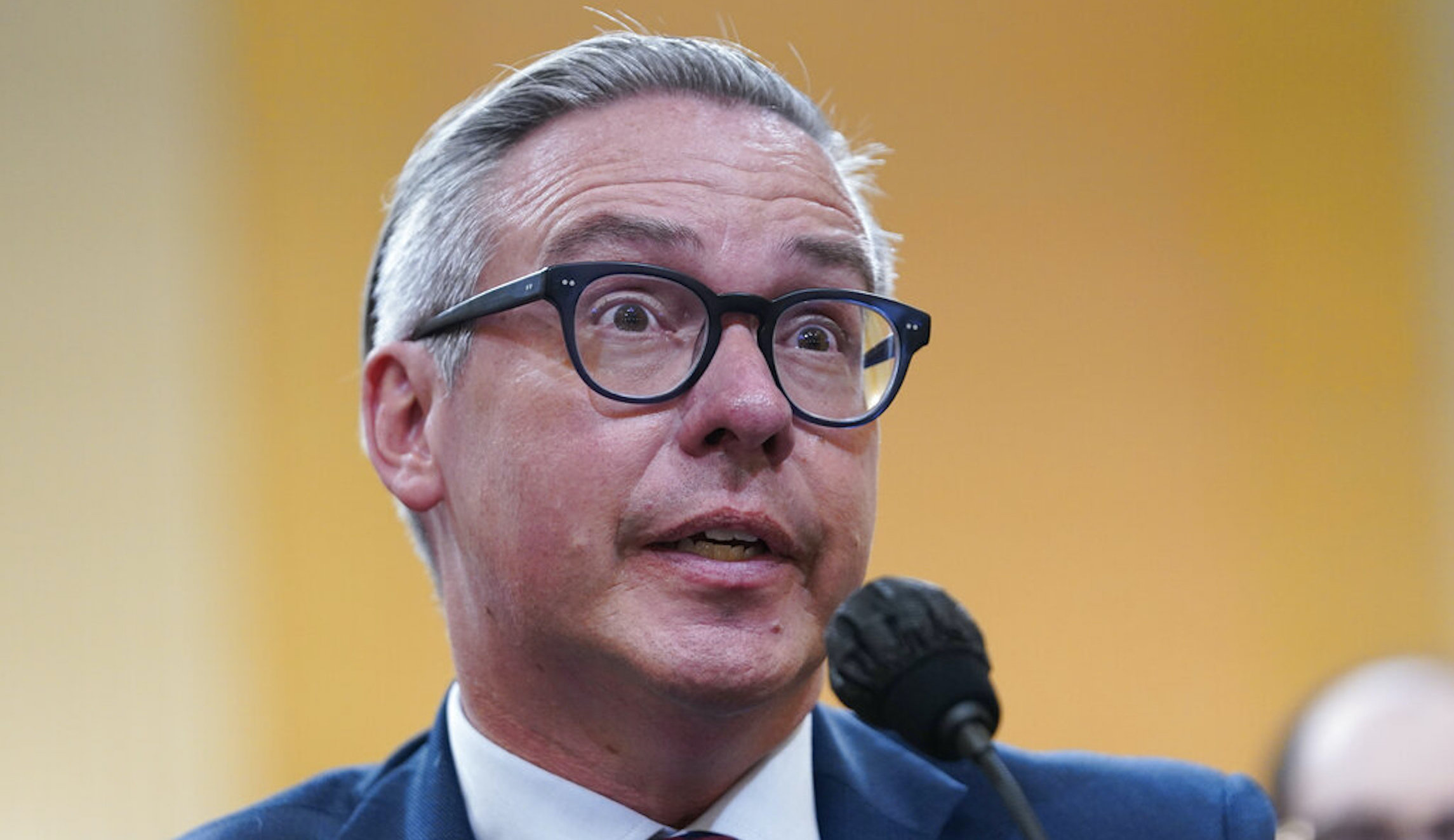
As Donald Trump pushed claims of voter fraud, the former president especially focused on Pennsylvania as a key target in his efforts to overturn the election.
Trump publicly touted claims that mail-in and absentee ballots were cast for at least 8,000 voters who had already died, unfairly swinging the election in President Joe Biden’s favor. He pushed election officials in Philadelphia to investigate.
“Not only was there not evidence of 8,000 dead voters voting in Pennsylvania. There wasn’t evidence of eight. We took seriously every case that was referred to us no matter how fantastical, no matter how absurd, and took every one of those seriously, including these,” said Al Schmidt, former city commissioner of Philadelphia.
Al Schmidt, a former city commissioner of Philadelphia, in testifying to the Jan. 6 committee, says after investigating claims of voter fraud in the state:
“Not only was there not evidence of 8,000 dead voters voting in Pennsylvania. There wasn’t evidence of 8.” pic.twitter.com/nvosiUH85k
— CBS News (@CBSNews) June 13, 2022
Allies of former President Donald Trump failed to make the legal case that widespread voter fraud deprived the president of an election victory, Ben Ginsberg, an election law expert, testified.
Ginsberg noted that his campaign repeatedly failed in court and that subsequent reviews of the election failed to corroborate claims that the election was stolen from him.
“It’s also worth noting that even if the Trump campaign complained that it did not have its day in court, there have been post-election reviews in each of the six battleground states that could have made a difference. And those range from the somewhat farcical cyber ninjas case in Arizona to the Michigan Senate report that was mentioned earlier,” Ginsburg said. “There was no credible evidence of fraud produced by the Trump campaign or his supporters.”
Despite the lack of evidence of fraud, members of Trump’s continued to search for means to challenge the election.
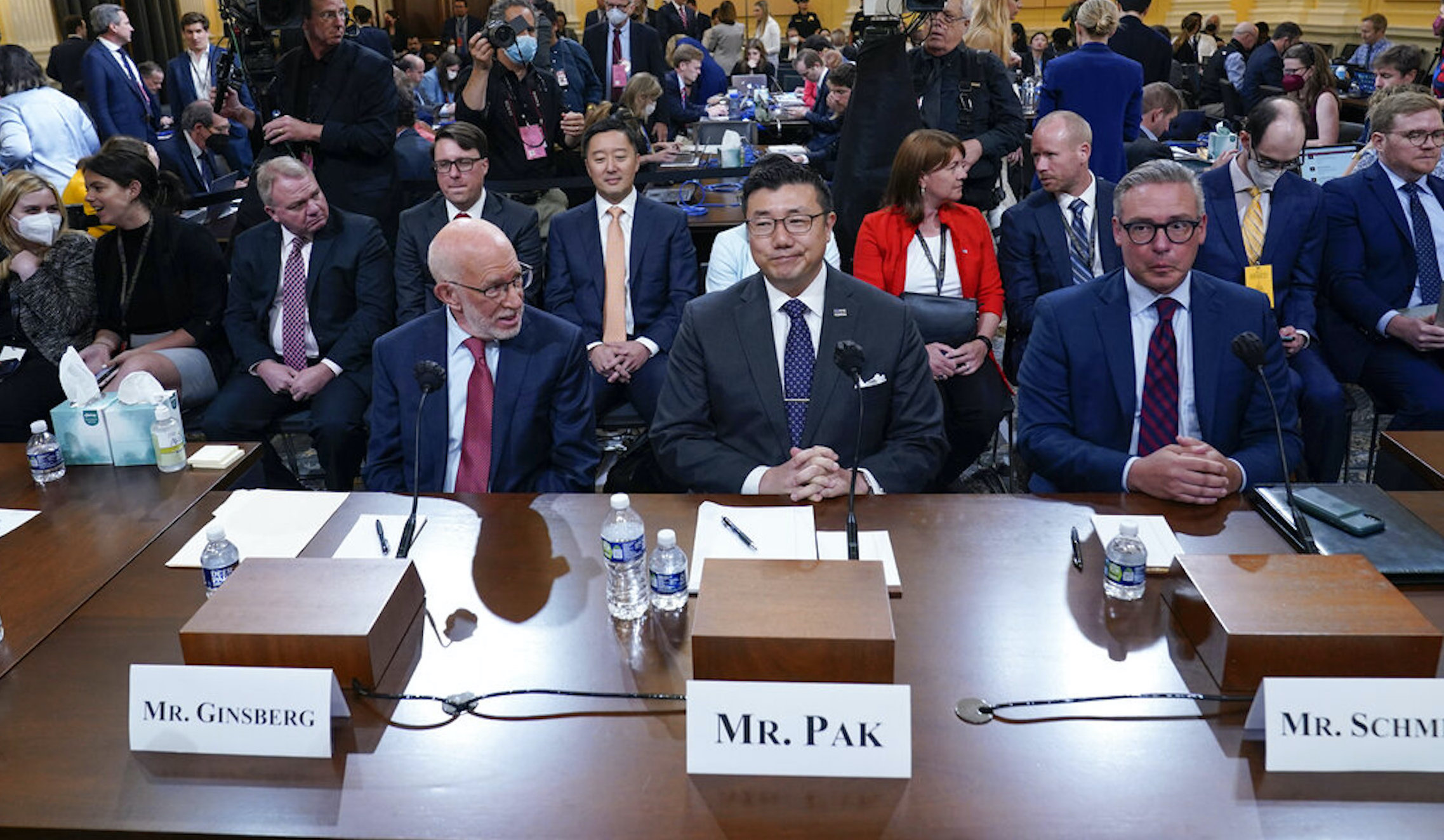
Election workers in Philadelphia faced threats after rejecting efforts from former President Donald Trump and his allies to overturn election results in Pennsylvania, a key swing state that helped solidify President Joe Biden’s victory.
Al Schmidt, a former city commissioner of Philadelphia, was the only Republican on the commission at the time and had been publicly berated by Trump as being a “RINO,” or “Republican in Name Only.”
Several of these threats, including email messages sent to Schmidt, signed out his family and children. Some read, “Corrupt election officials in Philadelphia are gonna get what’s coming to them,” and “You’re walking into the lion’s den,” according to Schmidt.
“On some level, it feels almost silly to talk about a tweet, but we can really see the impact that they have. Because prior to that [tweet], the threats were pretty general in nature,” he continued. “After the president tweeted at me by name, calling me out the way that he did, the threats became much more specific, much more graphic. And included not just me by name but included members of my family by name, their ages, our address, pictures of our home.”
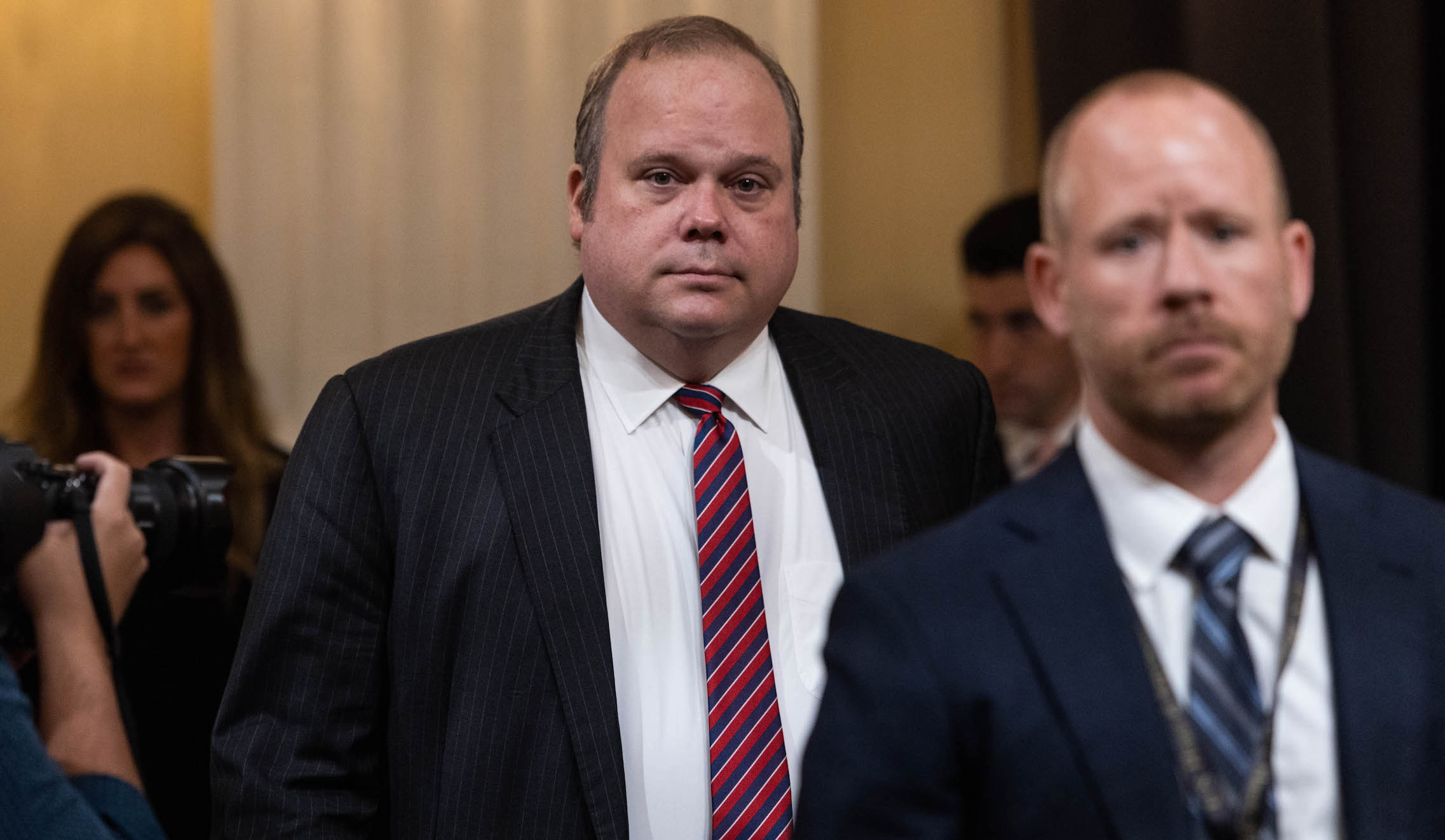
Chris Stirewalt, the former Fox News digital politics editor, explained the rationale for the network’s decision to call the results of the election in Arizona on election night in 2020 for Joe Biden, a decision that proved correct but resulted in his termination from the network.
Asked about the “controversial” call, Stirewalt said that “it was really controversial to our competitors who we beat so badly by making the correct call first.”
Stirewalt said the decision desk of which he was previously a part “was the best in the business, and I was very proud to be a part of it.”
Click here to read the full report.
Former President Donald Trump was a “weak element on the Republican ticket,” former Attorney General William Barr told Jan. 6 panel members during a deposition.
In the aftermath of the 2020 election, he had reviewed claims that election malfeasance took place in Philadelphia and quickly concluded that claims of rampant fraud were false.
“In Pennsylvania, Trump ran weaker than the Republican ticket general he ran weaker than two of the state candidates who ran weaker than the congressional delegate delegation, that running for federal Congress…he generally was a weak element on the ticket,” Barr surmised.
The panel played a clip of his remarks Monday.
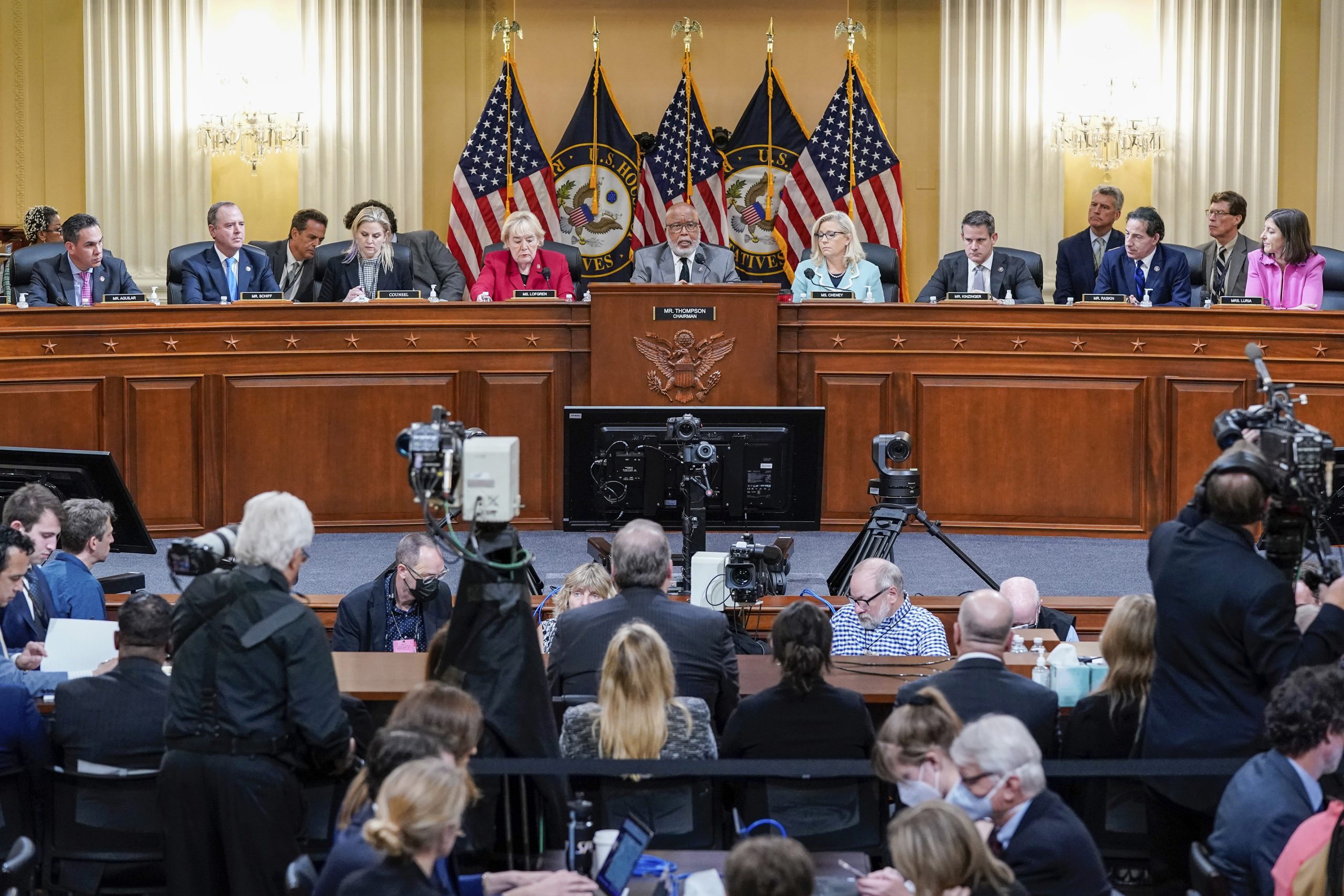
The House committee began its second panel of witnesses with testimony from Byung J. “BJay” Pak, a former federal prosecutor based in Atlanta. Pak, who was appointed by former President Donald Trump in 2017, suddenly quit amid Trump’s efforts to overturn the election results in the state.
Everyone was surprised he had stepped down, but sources familiar with the situation said he chose to quit before Trump could fire him.
After the election, William Barr asked Pak if he had seen testimony from Rudy Giuliani in a December Senate subcommittee hearing when the former lawyer showed purported security footage in Atlanta that he said showed election workers sneaking in ballots in a suitcase. Giuliani also made claims that election workers conducted fraudulent counting practices.
The former attorney general asked about the claims because he was set to go to the White House for a meeting and predicted he’d be asked about it, Pak said. However, the attorney said FBI officials interviewed election workers and found “nothing irregular happened in the counting and the allegations made by Giuliani were false.”
The Jan. 6 committee returned from a 10-minute recess and resumed its hearing. Chairman Bennie Thompson (D-MS) swore in the next slate of witnesses.
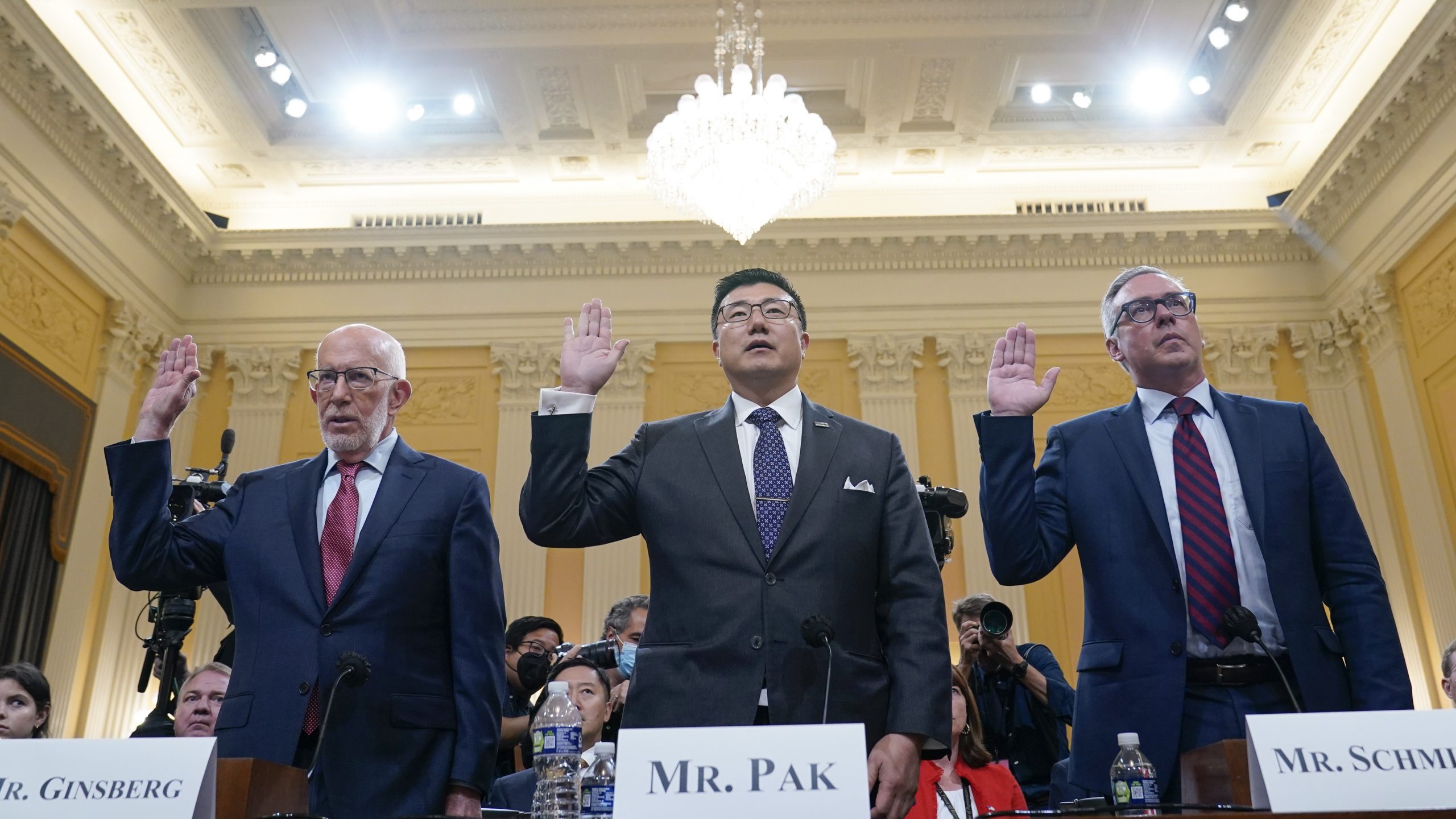
The second slate of witnesses for the hearing Monday has been seated, including Benjamin Ginsberg, a Republican election lawyer; B.J. “BJay” Pak, a former Trump-appointed U.S. attorney; and Al Schmidt, a former city commissioner of Philadelphia.
The hearing is expected to resume in the next couple of minutes.
After hearing live testimony from Chris Stirewalt, a former political editor for Fox News, and video interviews from several White House officials, the House committee has issued a 10-minute recess.
When they return, the panel is set to hear more testimony from Benjamin Ginsberg, a Republican election lawyer; B.J. “BJay” Pak, a former Trump-appointed U.S. attorney; and Al Schmidt, a former city commissioner of Philadelphia.
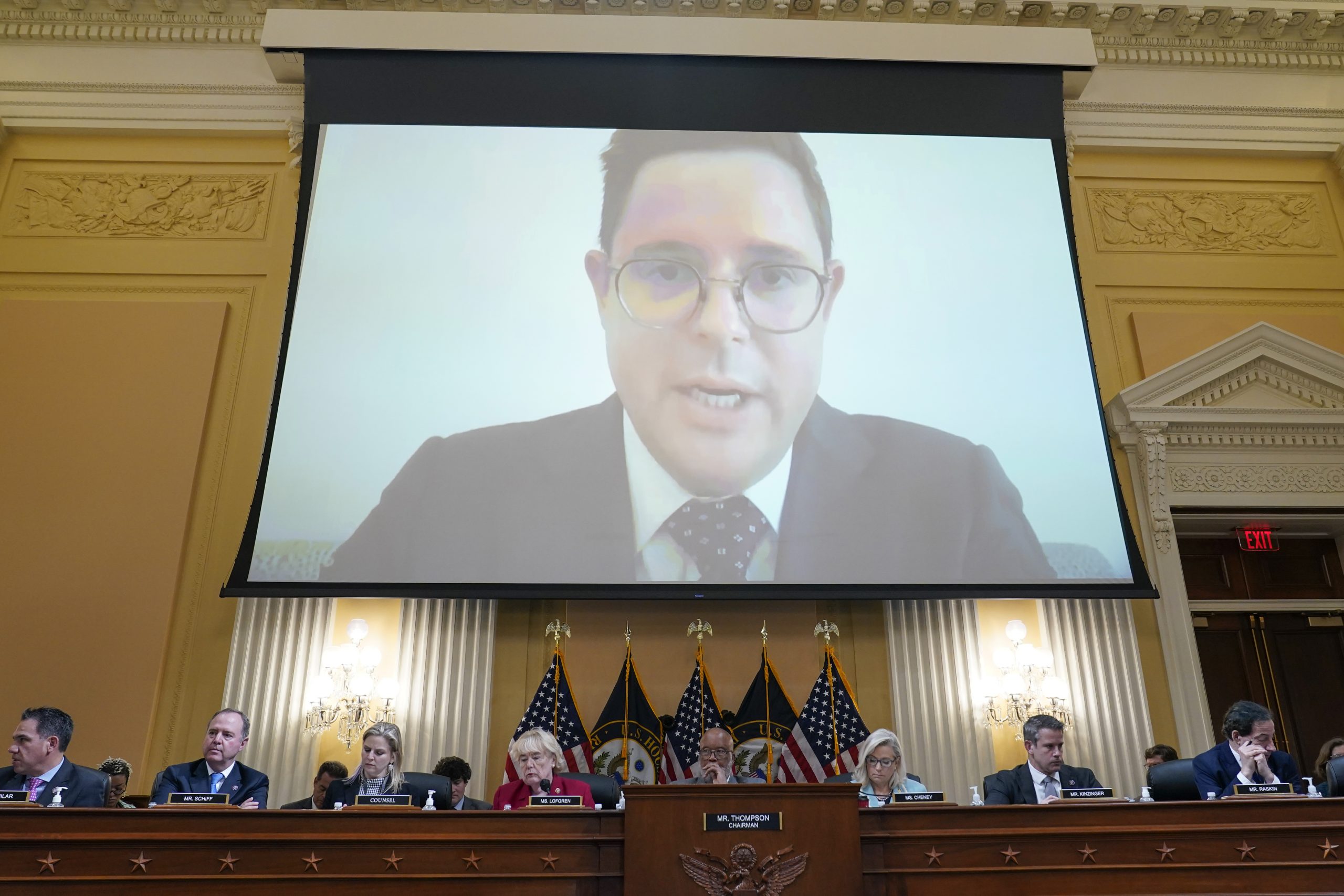
Alex Cannon, a lawyer for Trump campaign recalled a contentious call with former White House trade adviser Peter Navarro.
“I remember telling him that I didn’t believe the Dominion allegations because I thought the hand recount in Georgia would resolve any issues with a technology problem,” he said in a clip played by the committee. “I believe Mr. Navarro accused me of being an agent of the deep state working…against the president.”
In a clip from former Attorney General William Barr’s deposition, he laughed off the movie 2000 Mules, which Dinesh D’Souza and other conservative activists cobbled together, claiming that election malfeasance took place during the 2020 election.
“I haven’t seen anything since the election that changes my mind on that, including the 2000 Mules movie,” he said, chuckling. “The premise that you know, if you go buy a box, five boxes or whatever it was, you know that that’s a mule is just indefensible.”
Bill Barr laughs uproariously about the supposed evidence of election fraud “2000 Mules” — and explains why it’s bunk. pic.twitter.com/MHvHIcXnyJ
— Adam Klasfeld (@KlasfeldReports) June 13, 2022
“The other thing is people don’t understand is that it’s not clear that even if you can show harvesting, that that changes the results of the election,” he added. “The courts are not going to throw out votes and then figure out what votes were harvested and throw them out. It’s still the burden on the challenging party to show that illegal votes were cast.”
Days after Attorney General William Barr shot down 2020 election fraud claims in front of former President Trump, the president publicly peddled theories that Dominion Voting Machines were compromised.
The Jan. 6 committee played a clip of Trump pushing the Dominion Voting fraud theory coupled with clips from Barr’s deposition in which he panned the claims and recalled conversations with the president where he repeatedly rejected the theories.
Former Attorney General Bill Barr on Pres. Trump pushing baseless conspiracy about Dominion voting machines: “I thought, boy, if he really believes this stuff, he has lost contact with — he’s become detached from reality.” https://t.co/NRwraEI6rO pic.twitter.com/Mx6vQUR9Xq
— ABC News (@ABC) June 13, 2022
“I told him that the stuff that people were shuttling out to the public was bulls***. I mean that the claims of fraud were bullsh***. And, you know, he was indignant about that,” Barr said.
Trump tried to his attorney general evidence to back up his claims, but Barr was not impressed.
“I didn’t see any supporting information for it. And I was somewhat demoralized because I was like, boy, if he really believes this stuff, he has lost contact with reality and become detached from reality.”
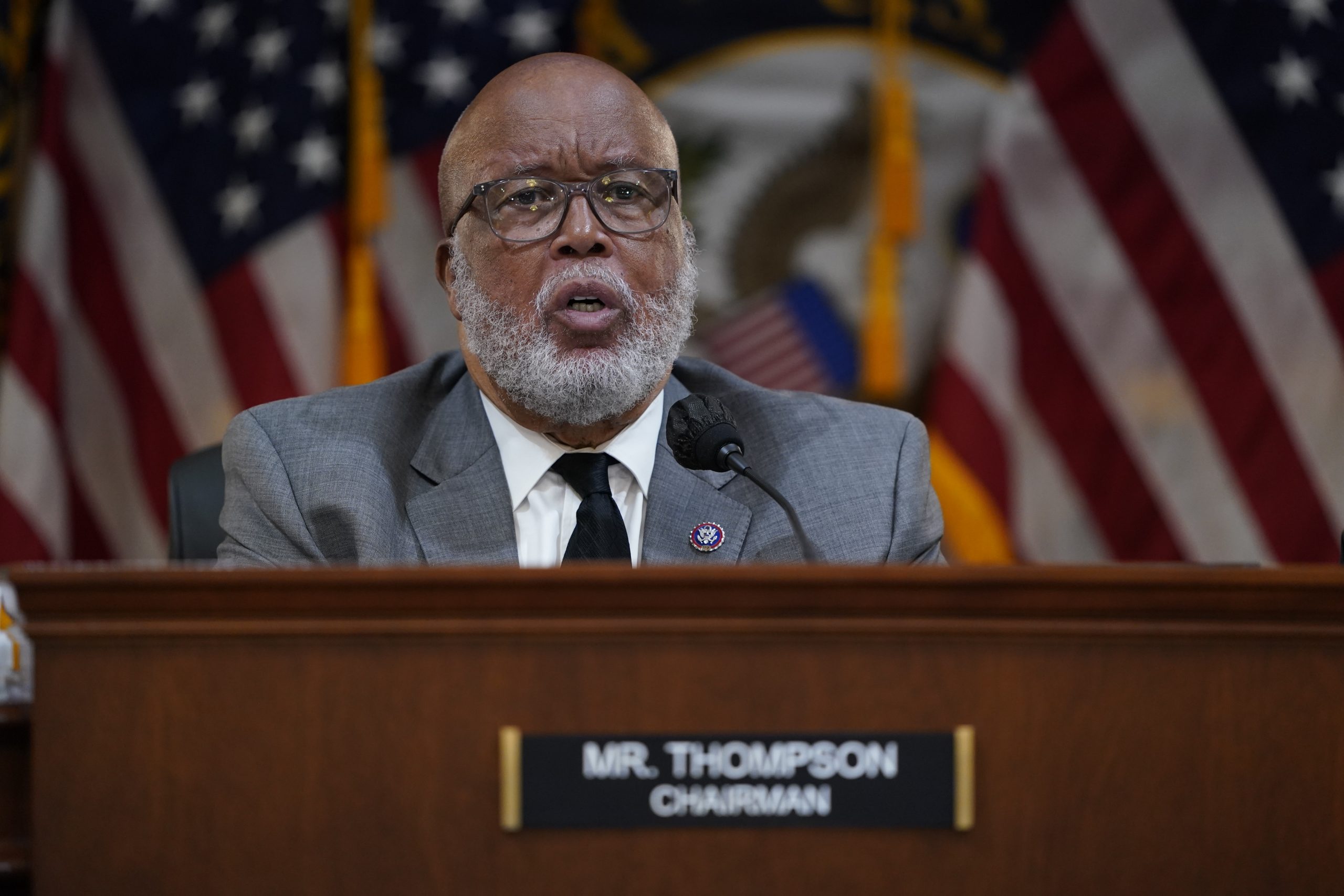
It’s unclear if or when former Trump campaign manager Bill Stepien will appear before the Jan. 6 committee to testify, with Chairman Bennie Thompson (D-MS) telling reporters on Monday he’s “not sure.”
Stepien was set to be one of the most high-profile witnesses during the committee’s second hearing, but he had to drop out less than an hour before the hearing was scheduled to begin due to a family emergency. The former campaign manager still appeared in several video clips collected from interviews conducted by the House panel over the last few months.
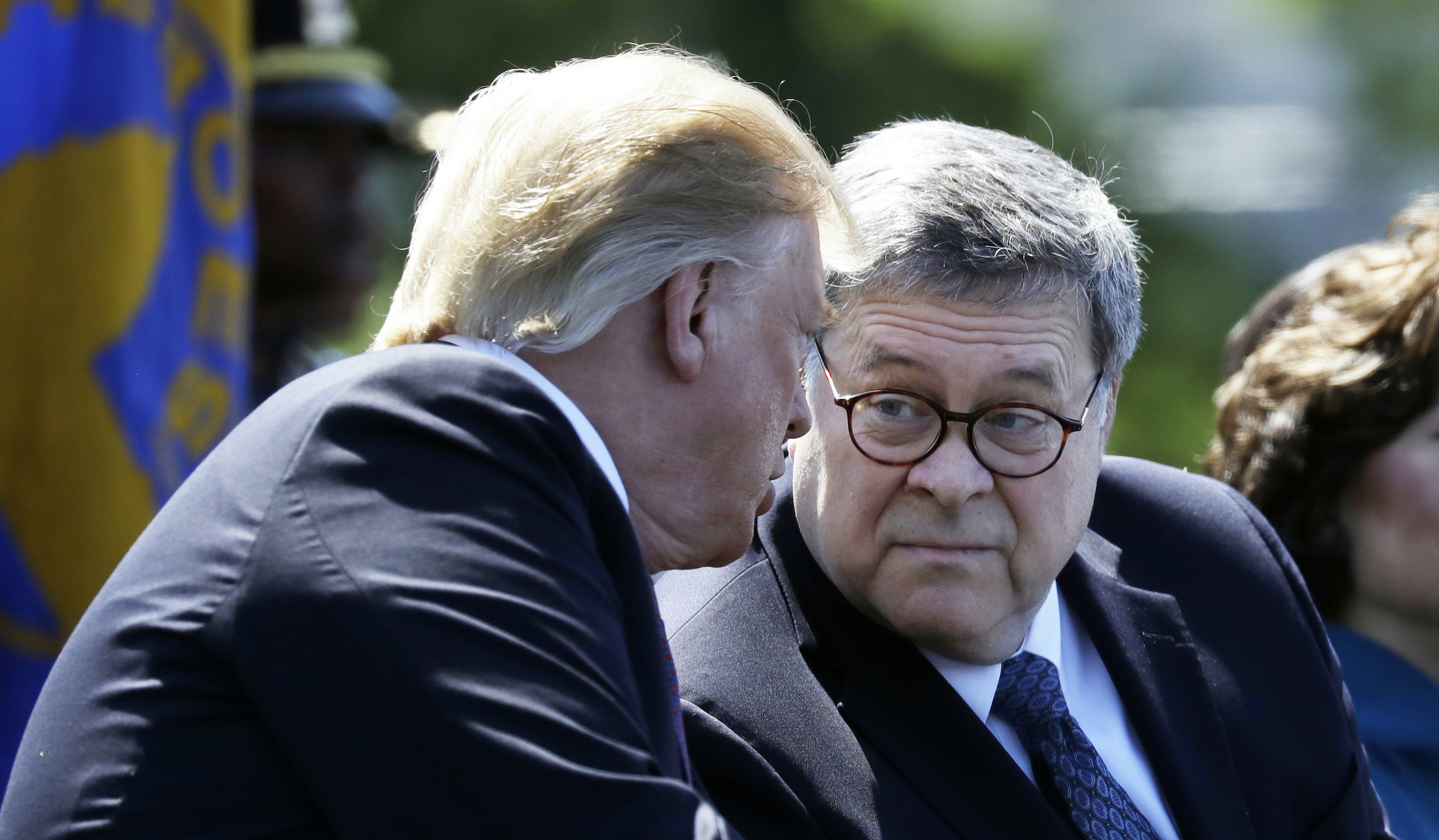
Former Attorney General William Barr recalled his first meeting with former President Donald Trump after his electoral defeat, during a deposition with the panel. The Jan. 6 committee played a clip of Barr recalling the meeting during the hearing Monday. Barr said the meeting took place Nov. 23 and was the first meeting with the president since the middle of October.
“It was a little getting awkward because, obviously, he had lost the election and I hadn’t said anything to him,” Barr recounted. “He went on this for quite a while, as he’s prone to do, and then he got to something that I was expecting, which is to say that, apparently, the Department of Justice doesn’t think that it has a role of looking into these fraud claim.”
“I said, ‘You know, that has to be the campaign that raises that with the Justice Department doesn’t take sides in elections and the department is not an extension of your legal team,'” Barr continued.
Barr was adamant with Trump that he lost the election and sought to keep distance between the Justice Department and Trump’s election objectives. Shortly after that meeting, he talked to an Associated Press reporter and cast doubt on the president’s election claims. Trump was the maddest he had ever seen, Barr said.
Several members of Donald Trump’s legal team shot down the former president’s claims that the election was stolen from widespread fraud, according to a video compilation of testimony played during the hearing on Tuesday.
In one clip, former general counsel for Trump’s campaign Matt Morgan testified that campaign officials determined that claims of election fraud, if proven true, would not alter the results.
“What was generally discussed on that topic was whether the fraud, maladministration, abuse or irregularities, if aggregated and read most favorably to the campaign, would that be outcome determinative,” Morgan said. “And I think everyone’s assessment in the room, at least amongst the staff, [former Chief of Staff to the Vice President] Marc Short, myself, and Greg Jacob, was that it was not sufficient to be outcome determinative.”
In another clip, former White House lawyer Eric Herschman echoed those sentiments, denouncing additional claims from Trump that Dominion Voting machines were hacked in order to sway the election in President Joe Biden’s favor.
“I thought the Dominion stuff was, I never saw any evidence whatsoever to sustain those allegations,” Herschman said.
Former President Donald Trump’s re-election campaign effort was “structurally and fiscally deficient” according to ex-campaign manager Bill Stepien.
“I inherited a campaign that was the day I was hired [during] President Trump’s low point in the 2020 daily average polling. The President was to campaign at a low point in the polls,” he said in a video displayed by the committee. “It was structurally and fiscally deficient.”
Most of my day was spent fixing what I think I took 115 days left in the campaign. Most of my time is spent fixing the things that could be fixed 115 days left in the campaign,” he added.
A man from Texas who allegedly participated in the Jan. 6, 2021 storming of the Capitol wore a GoPro during the riot.
Nolan Cooke, a 24-year-old, was sentenced to a year and a day in federal prison Friday after pleading guilty in March to a felony charge of civil disorder. Footage from the GoPro he wore was released during the hearing last Thursday, NBC reported.
“We’re coming through, we’re coming through!” Cooke he appeared to shout in the footage. “This is our house. This is our f***** house, man,” he adds, before telling officers to “join” the mob.
In case you missed it: Here’s some newly-released GoPro footage filmed by a Capitol rioter as he rushed police on the eastern side of the Capitol. The video was released to news outlets at the request of @NBCNews: https://t.co/1eeKb5bZRj
— Ryan J. Reilly (@ryanjreilly) June 13, 2022
On election night, several White House officials advised then-President Donald Trump not to declare victory prematurely, noting it was too early to tell.
.@RepLizCheney said during the #January6thHearings there’s proof Rudy Giuliani was drunk on election night and told Donald Trump “to just claim he won and insist that the vote-counting stop.”
LATEST: https://t.co/CUXsj9tPu2 pic.twitter.com/rXAqzPbUUc
— Washington Examiner (@dcexaminer) June 13, 2022
However, the former president received conflicting advice from his lawyer Rudy Giuliani, who pressed Trump to call the race.
“You will also hear testimony that President Trump rejected the advice of his campaign experts on election night and instead followed the course recommended by an apparently inebriated Rudy Giuliani to just claim he won and insist that the vote-counting stop,” said Rep. Liz Cheney (R-WY).
Cheney said Trump “falsely told the American people that the election was ‘not legitimate,’ in his words, quote, ‘a major fraud.’ Millions of Americans believed him.”
Jason Miller, who was an aide to Trump, acknowledged in recorded testimony played by the committee at the hearing that Giuliani was intoxicated on election night. Giuliani said in recorded testimony he spoke with the president several times on election night.
Click here to read the full story.
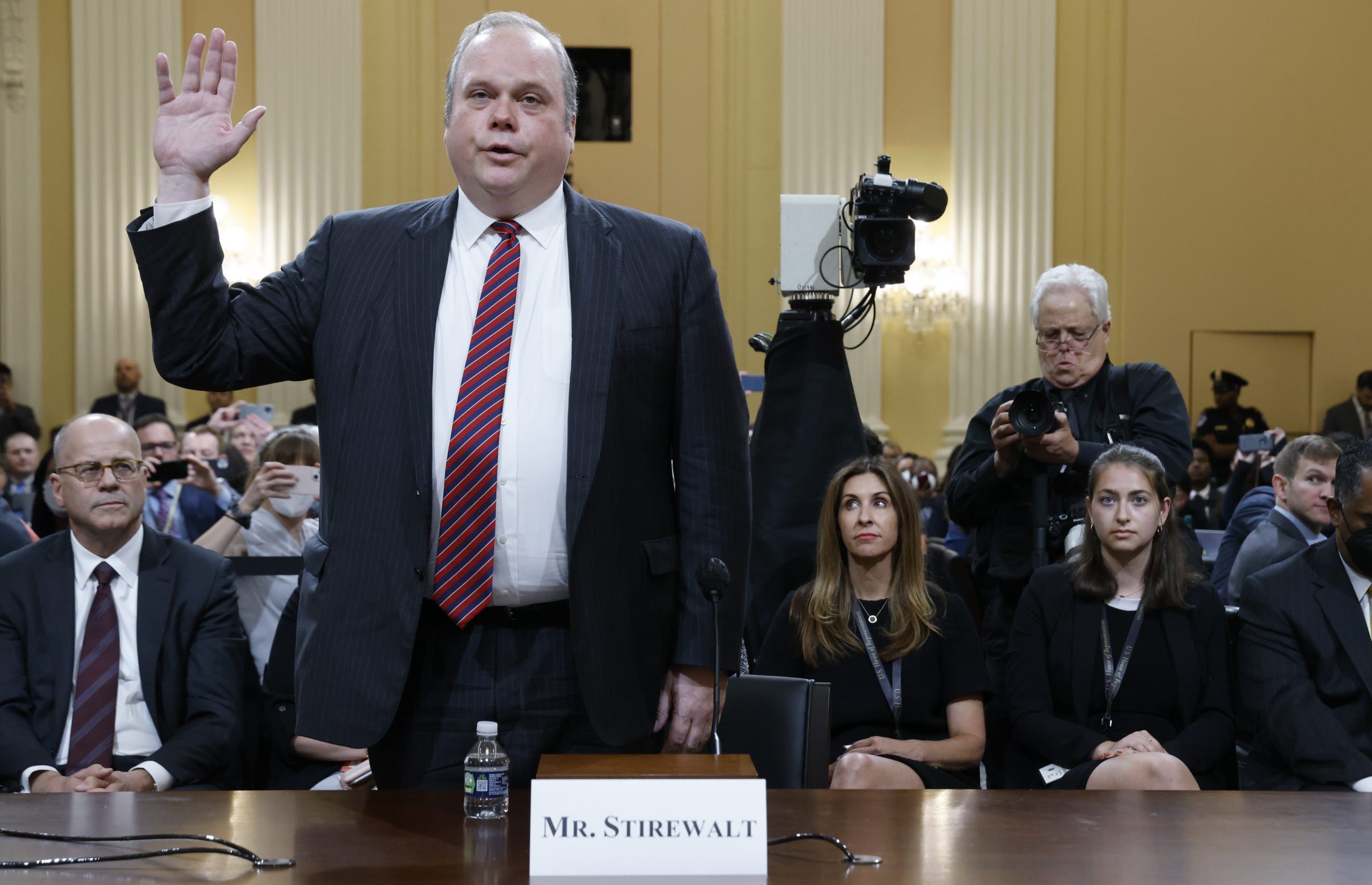
The House select committee began its hearing with testimony from its first witness, Chris Stirewalt, a former political editor for Fox News.
Stirewalt led the Fox News politics team on election night when they correctly predicted that Biden would win Arizona, a key state that would secure his victory. Fox News later fired Stirewalt and he became outspoken about how the news outlet contributed to several Trump supporters believing the election was stolen.
The ex-Fox News editor detailed how he instructed his staff to be mindful of an expected “red mirage,” meaning votes would largely favor Donald Trump in the early hours of election night before mail-in and absentee votes were counted. This delay in voting results was not unusual, Stirewalt testified.
“We had gone to pains — and I’m proud of the pains we went to — to make sure that we were informing viewers that this was going to happen because the Trump campaign and the president had made it clear that they were going to try to exploit this anomaly and we knew it was going to be bigger because the percentage of early votes was higher,” Stirewalt said. “It happens every time.”
Before his testimony, the committee played a video compilation of interviews the panel conducted ahead of the hearings from several White House officials, including ex-campaign manager Bill Stepien and ex-campaign senior adviser Jason Miller, who detailed the surprise when Arizona was called in favor of President Joe Biden.
Despite concessions from former Trump campaign manager Bill Stepien that it was “far too early” for the race to be called, White House officials said that Trump lawyer Rudy Giuliani had pressed Trump to declare victory prematurely.
“I think effectively Mr. Giuliani was saying, ‘We won it, they were stealing it from us, where did all the votes come from?'” said ex-campaign senior adviser Jason Miller.
Stepien said he had advised the former president not to declare victory, noting they should hold off giving comments until the next day. However, former President Donald Trump said he was wrong and “he told me so” and that they were “going to go in a different direction.”
Those who have been arrested and charged in connection to the Jan. 6 attack on the Capitol were influenced by former President Donald Trump’s claims of voter fraud, said Rep. Liz Cheney (R-WY).
In the weeks following the election, “‘Mr. Trump betrayed his supporters by conning them on Jan. 6, and he is still doing it,'” Cheney said, quoting a conservative editorial board, during her remarks on Monday. “Another conservative editorial board that has long supported President Trump said last week that Donald Trump ‘won’t stop insisting that the 2020 election was stolen. Even though he has offered no proof that that is true.'”
The House select committee opened its second Jan. 6 hearing on Monday, outlining its arguments that former President Donald Trump privately knew he had lost the 2020 election while publicly claiming the election was stolen by widespread fraud.
“He ignored the will of the voters. He lied to his supporters and the country. And he tried to remain in office after the people had voted him out,” said Chairman Bennie Thompson (D-MS). “This morning, we will tell the story of how Donald Trump lost an election, knew he lost an election, and as a result of his lies, decided to wage an attack on our democracy and attack on American people.”
The House select committee is outlining its arguments Donald Trump privately knew he had lost the 2020 election while publicly claiming the election was stolen by widespread fraud.
“He ignored the will of the voters,” @BennieGThompson said.
LATEST: https://t.co/hhFpPHhRGo pic.twitter.com/0nTuxjqi57
— Washington Examiner (@dcexaminer) June 13, 2022
The second public hearing will focus on Trump’s claims that the 2020 election was stolen through widespread voter fraud, often dubbed the “Big Lie” by Democrats. Lawmakers will argue how these claims, which have been disproven through several lawsuits and election audits, are connected to the Jan. 6 attack on the Capitol as Trump supporters sought to interrupt the certification of President Joe Biden’s victory.
The hearing on Monday will focus on the committee’s argument that former Trump had a “seven-part plan” intending to overturn the results of the 2020 election, which Rep. Liz Cheney (R-WY) alluded to in her remarks on Thursday.
Investigators in Georgia who are looking into possible crimes committed by former President Donald Trump are keeping a close eye on the Jan. 6 hearings in case there is testimony relevant to their case, sources told CNN.
Officials with the Fulton County District Attorney’s Office have previously met with staff members working with the House select committee investigating the Jan. 6 attack on the Capitol to identify any overlap between their investigations.
The House panel is set to hear testimony from Byung J. “BJay” Pak, a former federal prosecutor based in Atlanta. The Trump-appointed U.S. attorney resigned one day after it was reported Trump had called Georgia Secretary of State Brad Raffensperger to “find” the votes needed to win the state.
In response to a medical emergency that precluded Bill Stepien, former Trump campaign manager, from making his planned appearance before the panel, the committee is reportedly planning to play a video of him, per CNN’s Manu Raju. The video was part of its contingencies plan in case a key witness had to withdraw at the last minute. He has been released from his subpoena because his wife went into labor, according to the report.
Stepien has been released from his subpoena to tend to his wife who is in labor. The committee has video of its witnesses to prepare for such contingencies — if a witness backs out, is sick or has an emergency, I’m told
— Manu Raju (@mkraju) June 13, 2022
Rep. Zoe Lofgren (D-CA), who chairs the House Administration Committee, is expected to take a prominent role during the hearing Monday. She previously served as an impeachment manager and helms the committee that oversees the Capitol Police.
Lofgren has long been a member of the committee. Last week, Reps. Bennie Thompson (D-MS) and Liz Cheney (R-WY) featured a pronounced role during the hearing. Thompson will reportedly still lead the hearing, but the panel appears to be planning to rotate members into leading the hearing going forward.
“Thursday’s hearing was only the beginning of the @January6thCmte presenting our findings to the American people. This morning, we will uncover the Big Lie perpetuated by the former President w/ new details & testimony,” she tweeted before the hearing.
Thursday’s hearing was only the beginning of the @January6thCmte presenting our findings to the American people.
This morning, we will uncover the Big Lie perpetuated by the former President w/ new details & testimony.
? Tune in: 10am ET/7am PT ?https://t.co/Z5WTMBN7M4
— Rep. Zoe Lofgren (@RepZoeLofgren) June 13, 2022
It is a busy week for the Jan. 6 committee. In addition to the hearing on Monday, there are key court dates scheduled for former Trump allies in its legal crosshairs.
Steven Bannon is slated to appear in court Wednesday for his criminal contempt of Congress case. He defied a subpoena from the panel and was held in contempt by Congress.
Peter Navarro, who similarly defied a subpoena from the committee, was also held in contempt and has a court appearance set for Friday. Both men are being pursued by the Justice Department for contempt of Congress charges.
Bill Stepien, former Trump campaign manager, scrapped plans to appear before the panel Monday because his wife went into labor, the Washington Post reported, citing two sources. His lawyer has reportedly had communication with the Jan. 6 committee.
For those who missed the hearing last Thursday, the Jan. 6 committee cut a three-minute recap video showcasing the highlights.
On Thursday, the Select Committee previewed our initial findings that the American people will see this month during our hearings.
Missed the hearing? 3-minute recap ⤵️ pic.twitter.com/gTRVlcYx1Y
— January 6th Committee (@January6thCmte) June 12, 2022
In contrast to the prime-time hearing last Thursday, Fox News is expected to air the public hearing on Monday. In doing so, the conservative cable news network joins most other national cable news channels such as CNN and MSNBC, as well as the top broadcast networks ABC, NBC, and CBS.
The hearing last Thursday took place during prime-time hours, and the network opted to have its prime-time hosts monitor the hearing for hits but refrained from airing the full thing — unlike its rivals. Fox Business aired the prior hearing.
Here is a list of individuals who are expected to testify during the Jan. 6 public hearings, according to the Washington Post. Notably Bill Stepien is no longer expected to testify.
Hearing➡️Monday at 10:00am
Panel 1
•William Stepien, Former Trump Campaign Manager
•Chris Stirewalt, Former Fox Political EditorPanel 2
•Benjamin Ginsberg, Election Attorney
•BJay Pak, Former US Attorney Northern District of GA
•Al Schmidt, Former Philadelphia City Commr— January 6th Committee (@January6thCmte) June 12, 2022
Chris Stirewalt, a former editor at Fox News, was widely seen as a key voice behind the scenes pushing the network to call Arizona for then-candidate Joe Biden. This drew ire from Trump, and Stirewalt was ultimately pushed out from the network.
Marc Short, former chief of staff to then-Vice President Mike Pence, has been working behind the scenes to push allies of Pence to cooperate with the Jan. 6 committee. During the build up to the Capitol riot, he voiced concerns about Pence’s safety. He has been cooperating with the panel behind the scenes and is expected to shed more light on the efforts of Trump allies to pressure Pence into decertifying the 2020 election.
BJay Pak, a former U.S. attorney in Georgia, Pak drew scrutiny when he suddenly resigned from his post shortly after the 2020 election. Notably, Fulton County District Attorney Fani Willis, is investigating the sudden resignation of a U.S. attorney in Atlanta, according to the Associated Press.
Al Schmidt, a former city commissioner of Philadelphia, was the only Republican commissioner of Philadelphia when Trump was pushing to challenge the election in Pennsylvania.
Ben Ginsberg, election law expert, will reportedly testify about his skepticism over election fraud claims.
Jeffrey Rosen, then-acting attorney general, took the reins from former Attorney General William Barr. His predecessor had clashed with Trump over the 2020 election and has since become a vocal critic of his former boss’s conduct after the election. Rosen was the top law enforcement official during the Capitol riot and has claimed he was pressured by allies of the former president to send a letter to the Justice Department about the election fraud claims.
Richard Donoghue served as the U.S. deputy attorney general during the Capitol riot. As the then-No. 2 at the Justice Department, he was adamant to Trump that he lost the 2020 election. He has reportedly claimed that Trump’s allies sought to appoint an ally of his in the Justice Department.
Steve Engel, a top Justice Department official, has previously talked to the committee about Trump’s efforts to pressure Pence into decertifying the 2020 election results
Greg Jacob, Pence’s attorney, was a key Pence ally when Trump and his associates tried to pressure the then-vice president into decertifying the election. He also reportedly had communication with Trump-linked lawyer John Eastman who developed a legal strategy to challenge the 2020 election.
Cassidy Hutchinson, former aide to former White House chief of staff Mark Meadows, was privy to much of the behind-the-scenes deliberations and strategy sessions in the White House and has reportedly talked to the panel on multiple occasions.
J. Michael Luttig, lawyer and former judge, has been a vocal critic of Trump’s election fraud claims and has insisted Pence did not have the authority to reject states’ electoral results on Jan. 6, 2021, or to “decertify” the election.
Brad Raffensperger, secretary of state of Georgia, was in charge of overseeing the elections in the Peach State when Trump sought to intervene in the process. Trump reportedly had a call with Raffensperger to “find” 11,780 votes in the state — enough votes to overturn the 2020 election results in Georgia, a state won by President Joe Biden. The call is believed to have triggered the Fulton county investigation into efforts to challenge the 2020 election.
Gabriel Sterling, top aide to the Georgia secretary of state during the 2020 election, was a Republican official who helped oversee the election in Georgia and has publicly lambasted Trump for attempting to interfere in the state.
The hearing has been delayed 30 minutes, following the announcement that Bill Stepien, former Trump campaign manager, will not be attending the hearing due to a family emergency.
Former Trump campaign manager Bill Stepien, who was set to be one of the more high-profile witnesses of the day, will no longer appear before the committee on Monday, citing a family emergency.
According to select committee, his lawyer will appear and make a statement instead. pic.twitter.com/ARscS469bb
— Kyle Cheney (@kyledcheney) June 13, 2022
Instead, a counsel for Stepien will make a prepared statement on his behalf. The former campaign manager and former White House official was compelled to appear under a subpoena from the panel, so it was unclear how forthcoming his testimony was going to be.
Click here for the full story.
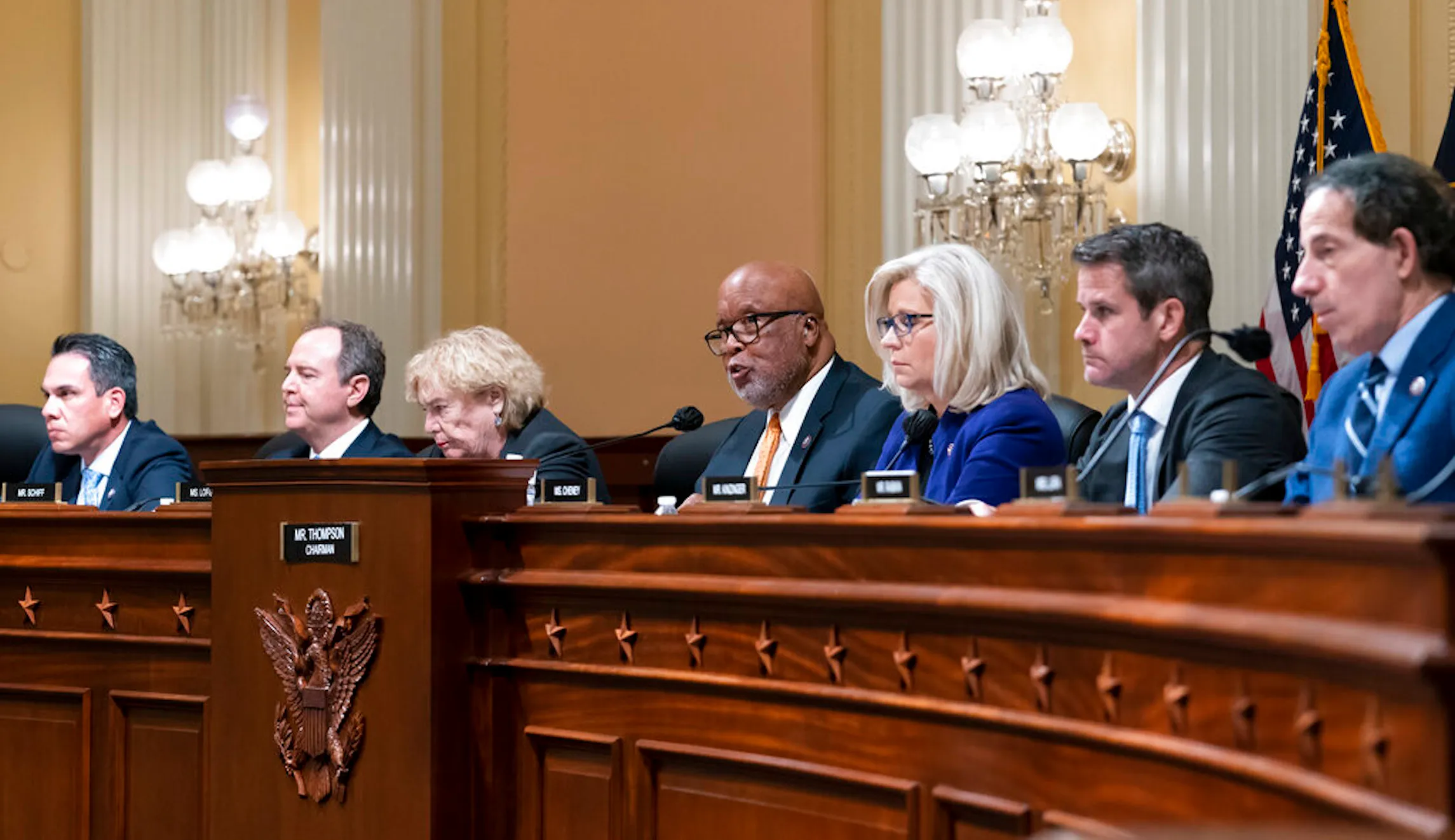
The Jan. 6 committee wrapped its first hearing in nearly a year Thursday night, and the prime-time show unveiled a slew of new information about the Capitol riot while teasing more to come in the five hearings to follow.
While the committee will present some of the evidence it has collected from thousands of witnesses, it was clear who is at the center of it all: former President Donald Trump. The evidence presented encircled Trump by pointing to his supporters’ efforts to block President Joe Biden’s 2020 win. The Jan. 6 committee delved into the motivations of his supporters, testimony of his advisers, and the brutality of the attack. Here are six key moments from the televised spectacle.
Click here to read the full report.
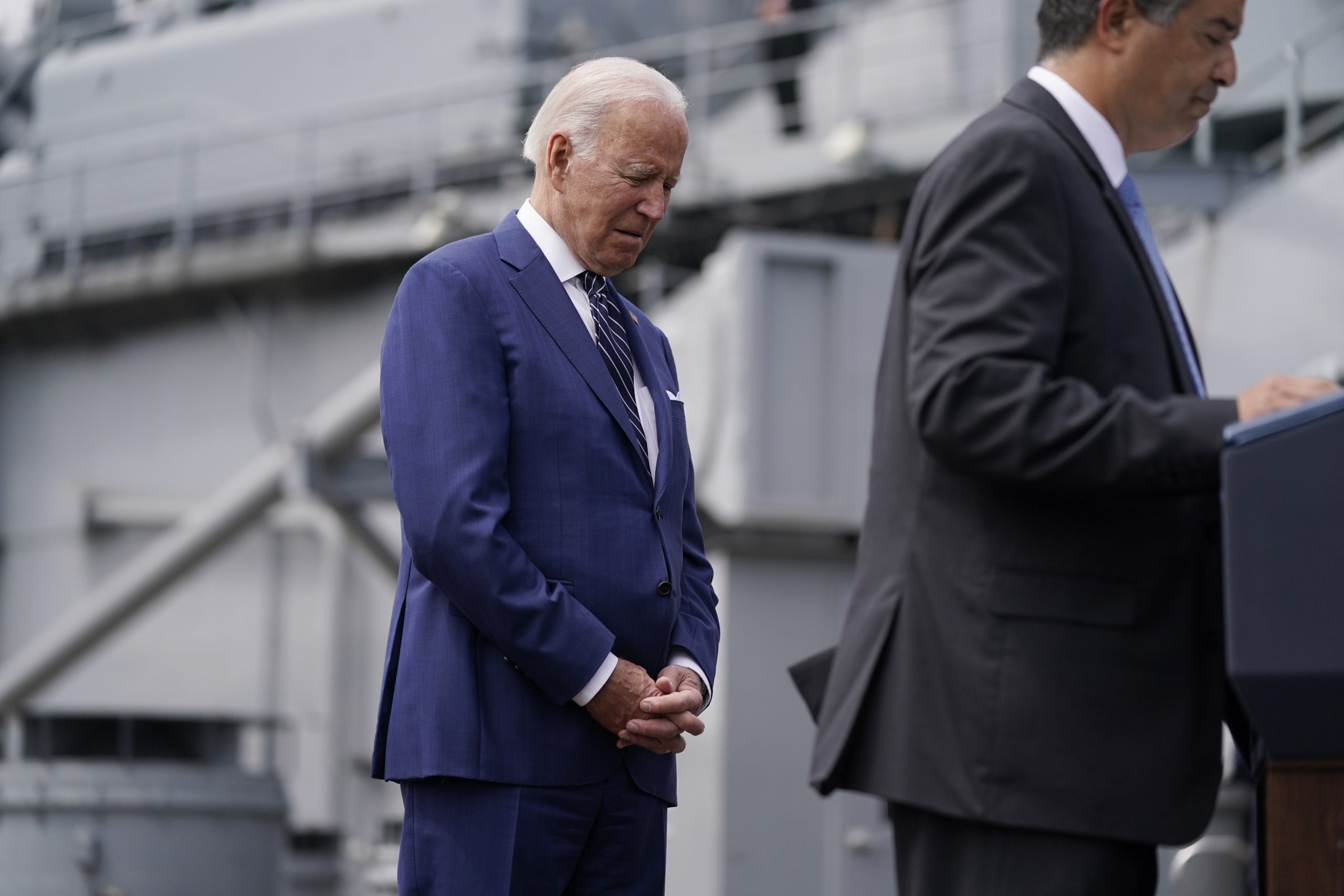
The Jan. 6 select committee aired its first public hearing Thursday night, but the spectacle might not be enough to distract voters from the multiple crises hampering the Biden administration.
More than 19 million people tuned in to watch in prime time, and President Joe Biden claimed Friday that the proceedings, led by Reps. Bennie Thompson (D-MS) and Liz Cheney (R-WY), will be “important” for helping the public process what led to the Capitol riot.
“It’s important the American people understand what truly happened and to understand that the same forces that led Jan. 6 remain at work today,” he said in Los Angeles before conceding that he did not catch the opening hearing himself. “We can unite and defend this nation, Democrat and Republican, [to] allow no one to place a dagger at the throat of our democracy.”
Click here to read the full report.
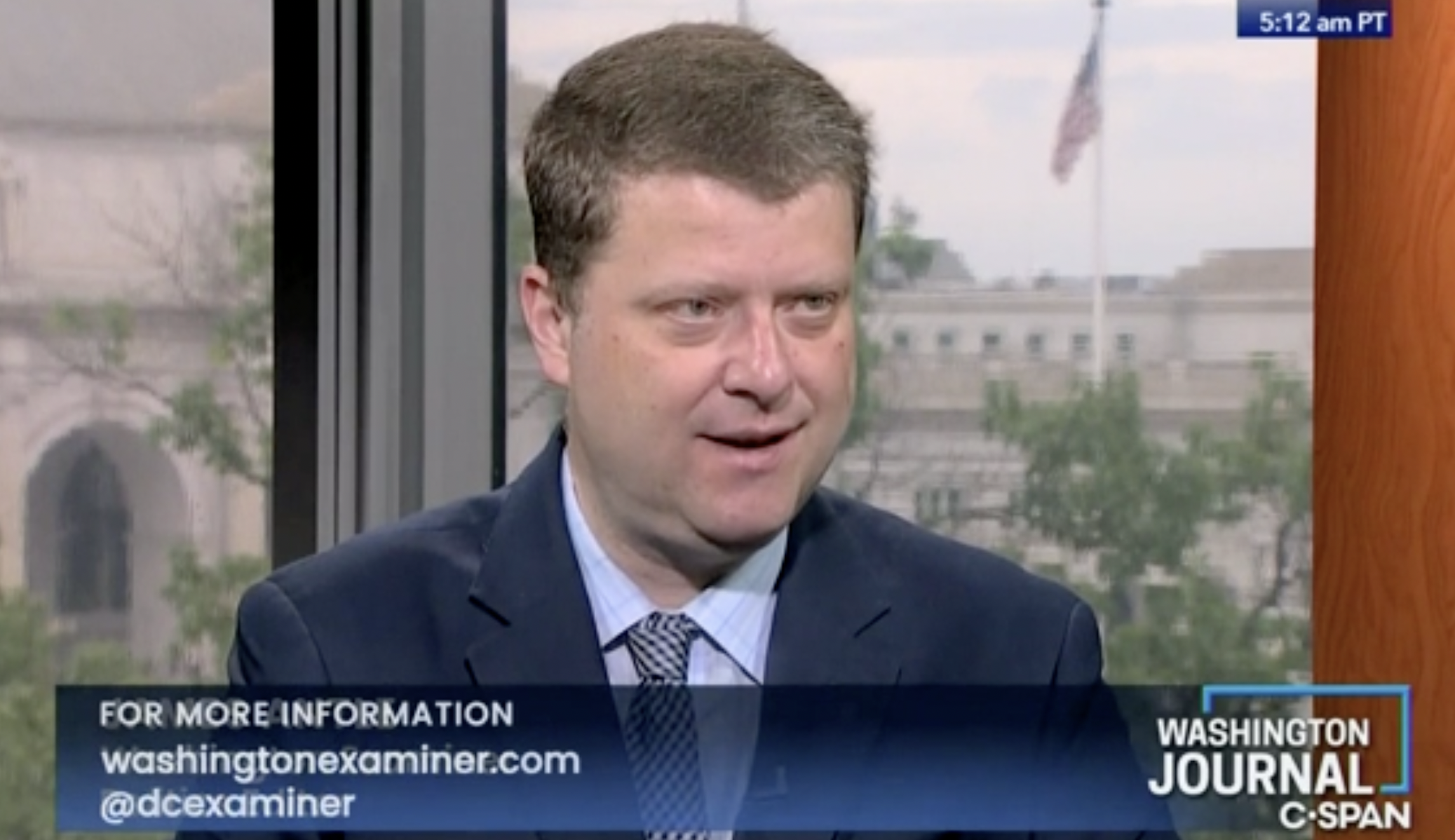
Washington Examiner Politics Editor James Antle said the characterization of the Jan. 6 committee’s first prime-time hearing as a “production” is correct, noting that most people were likely not swayed in their opinion regarding the Capitol riot.
“There was professional-level production value to this hearing,” Antle told C-SPAN’s Washington Journal. “They were making the most of their prime-time opportunity. I do think that just in terms of who was watching it, it is difficult to say that it changed any minds.”
Click here to read the full report.
